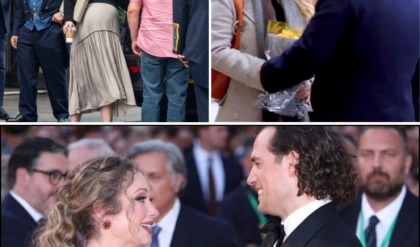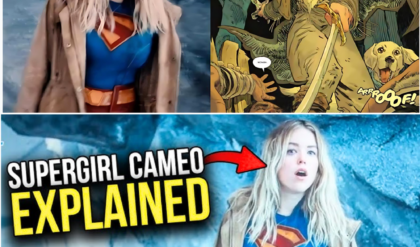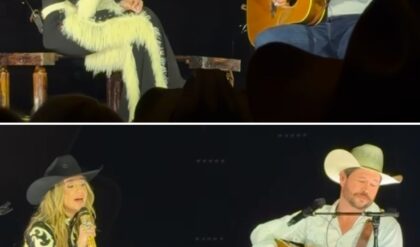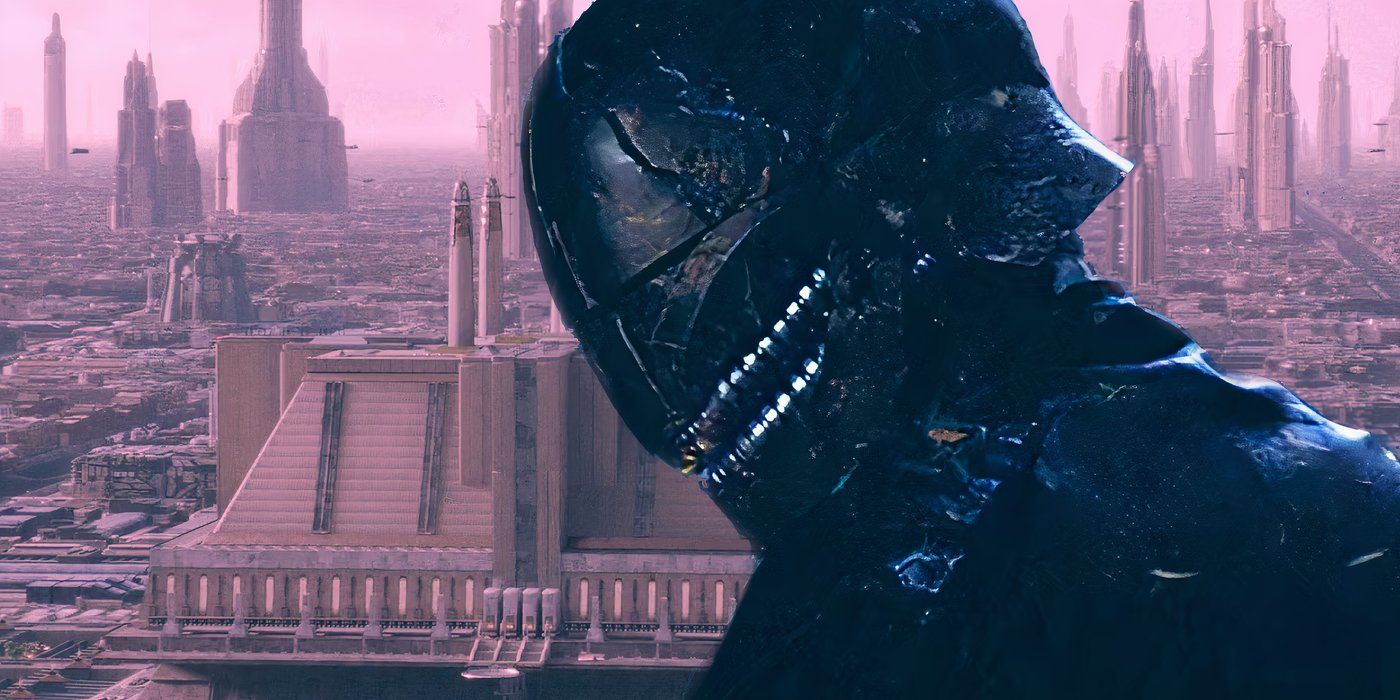
This is a time when the Jedi believed the Sith to be extinct, when in reality they were operating in the shadows, manipulating events across the galaxy. Viewers know what the Jedi do not; that after almost a thousand years of planning, the Sith in The Acolyte are poised to return. Within just over a century, the Jedi Order will be destroyed in Order 66. And yet already The Acolyte has hinted at the scale of the Sith plans, and indeed their infiltration of the Jedi Order.
We’ve Totally Missed One Crucial Line Of Dialogue
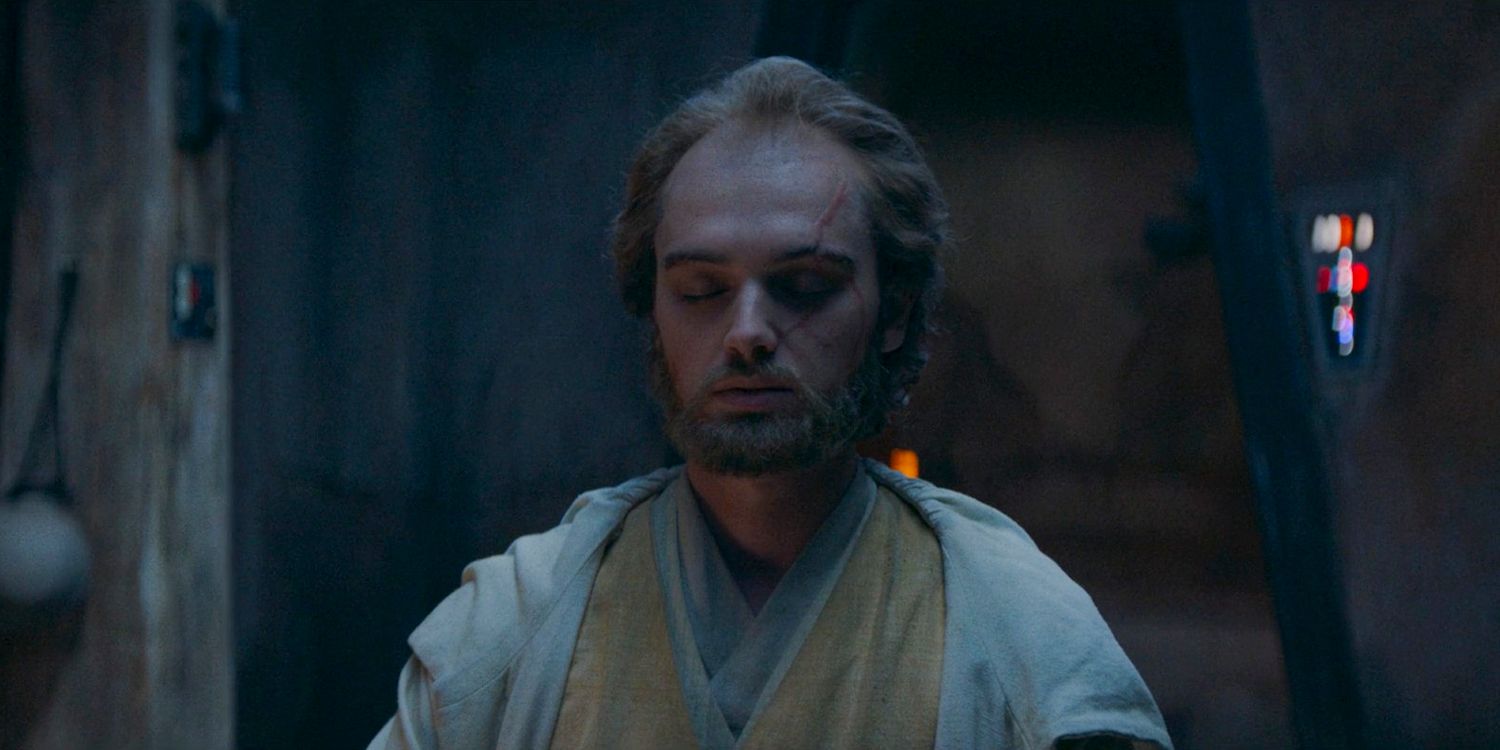
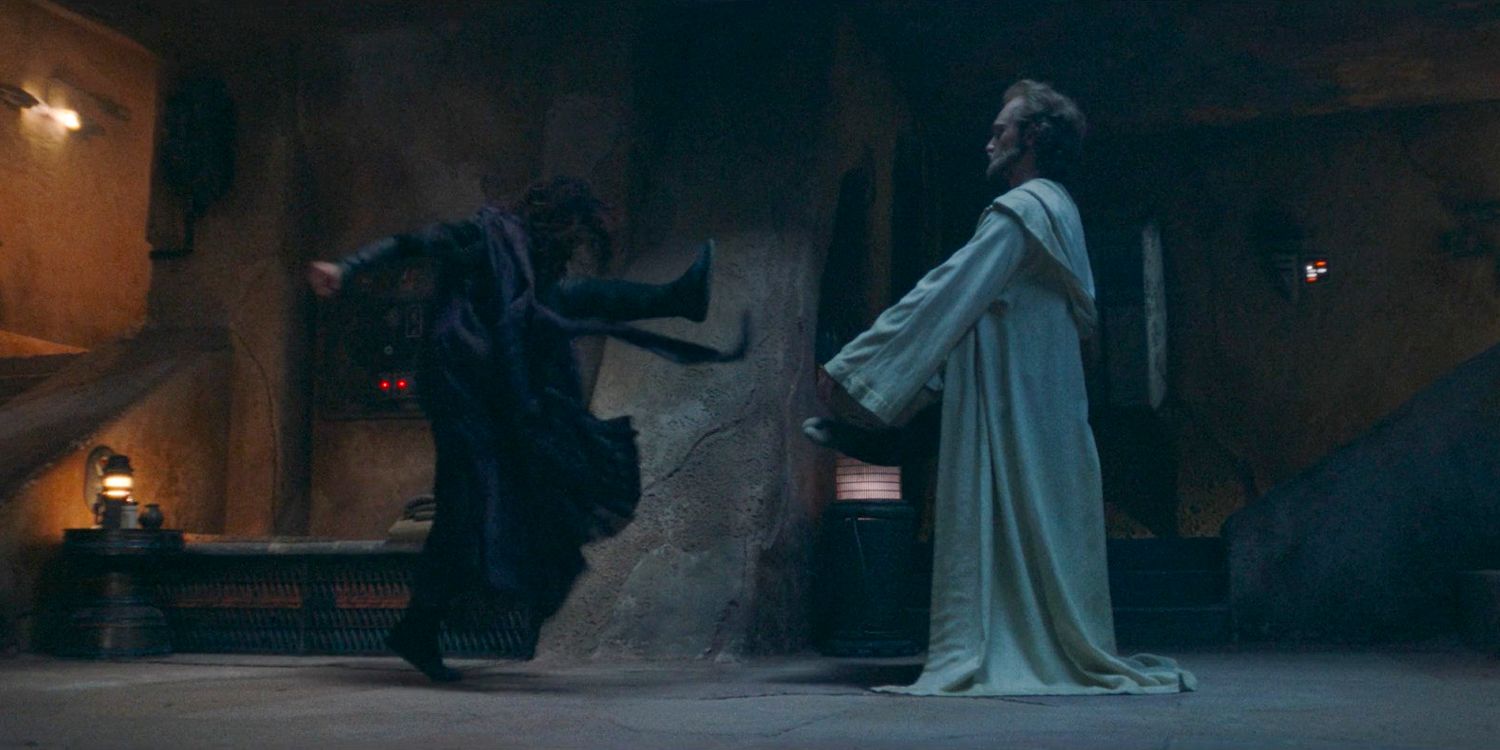
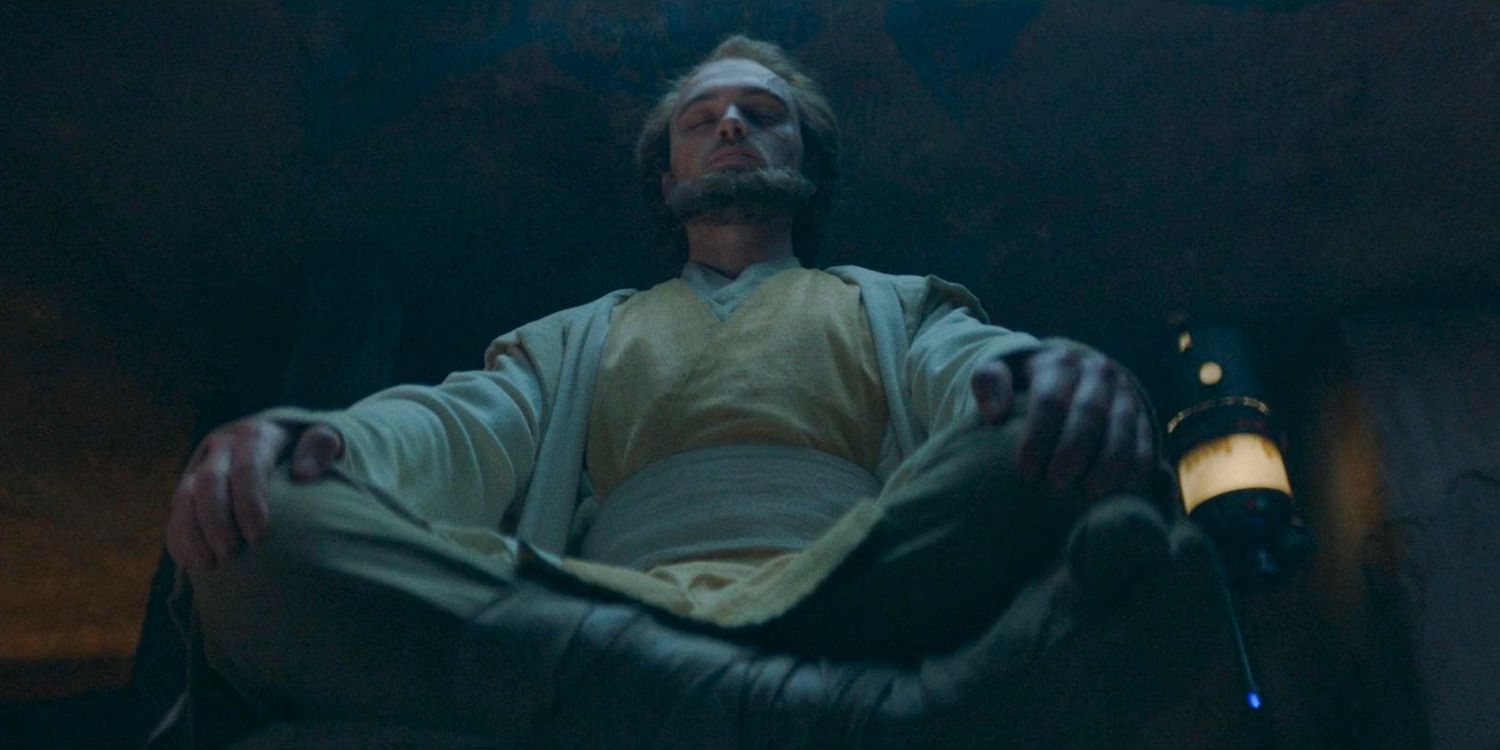
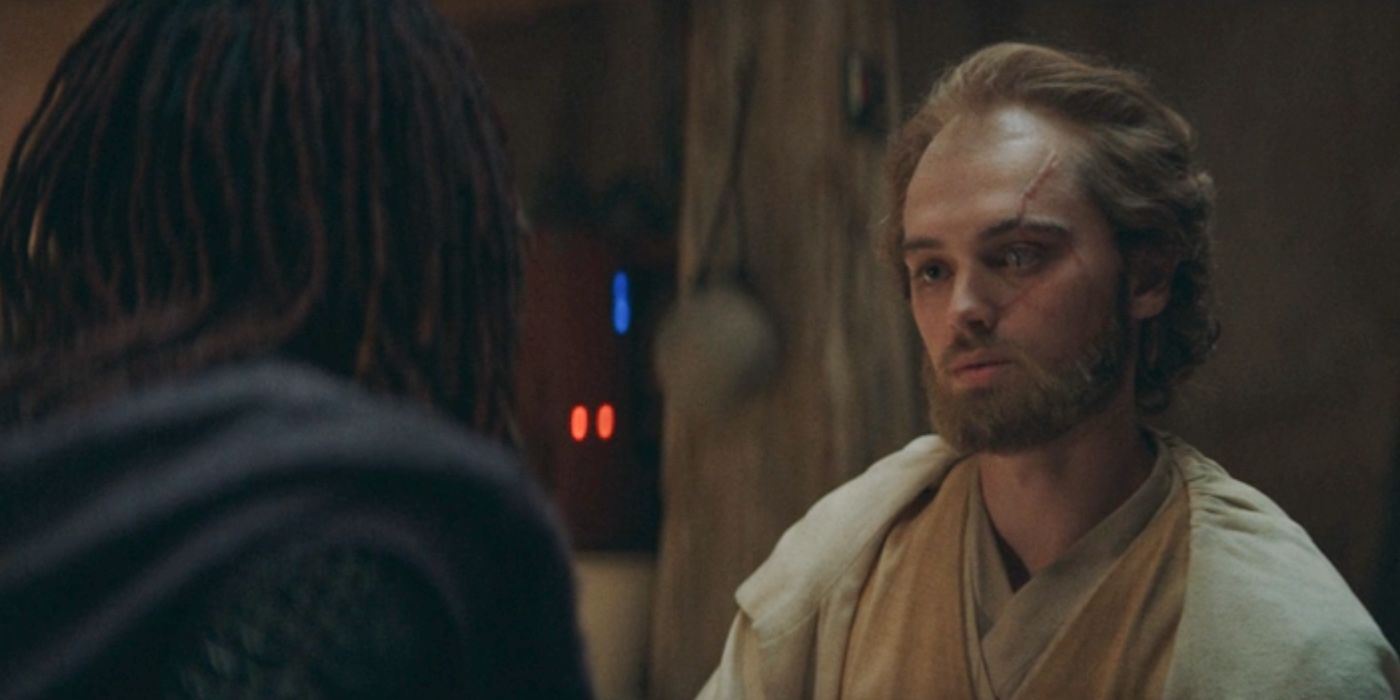
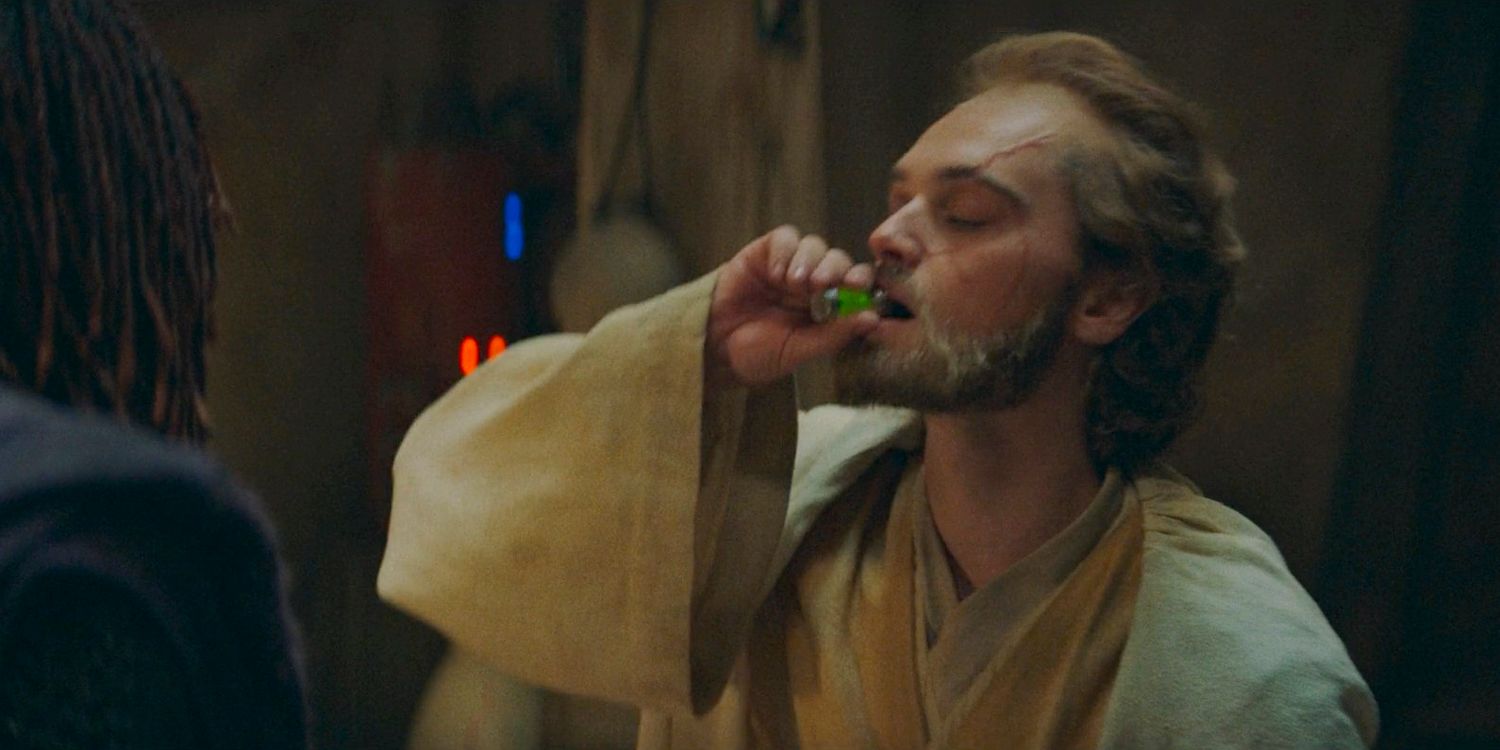





It was only on a rewatch that I spotted one crucial detail in The Acolyte episode 2. When Mae confronts Jedi Master Torbin for the second time, attempting to persuade him to take Bunta poison she offers him a brutal choice: “Confess your crime to the Jedi Council, or receive the forgiveness you seek… Right here. Right now. From me.” Naturally, the focus here really lies on the fact a Jedi Master has such a profound sense of guilt that he takes the poison. But we’ve all missed another aspect of this scene.
Mae knows Master Torbin didn’t tell the Jedi Council what happened on Brendok. Mae is no fan of the Jedi, so she’s more likely to assume the Jedi Council simply didn’t mind about whatever really happened on her homeworld. That means her comment indicates knowledge of Jedi Council records. The Sith acolyte knows what information has been passed on to the Jedi Council.
Later in the same episode, Qimir shows knowledge that could only come from the Jedi Archives as well. He tells Mae he knows where Master Kelnacca can be found, on the “relaxing forest retreat” of Khofar. Qimir clearly has sources who are able to access the Jedi Archives too; there’s a traitor among the Jedi.
Is The Traitor A Sith Agent… Or A Sith?

This inevitably leads to the next question; is this a Sith agent, or an actual Sith? Recent Star Wars novels have revealed Palpatine cultivated a network of agents who worked within the Jedi Temple; it’s how he identified potential recruits for the Imperial Inquisitors. It’s quite possible he wasn’t the only Sith to come up with that idea. The problem, though, is that no random civilian or member of staff should be able to access Jedi Council records or mission logs for active Jedi. This suggests a Jedi working for the Sith.
Suddenly the stakes of The Acolyte have been raised. In interviews, Leslye Headland has suggested this is the story of how the Sith “infiltrated” the Jedi – and it’s entirely possible that is true. The Sith are ruthless and manipulative, and it’s so easy to imagine them hiding among the Jedi themselves. That disturbing possibility cannot be ruled out.
